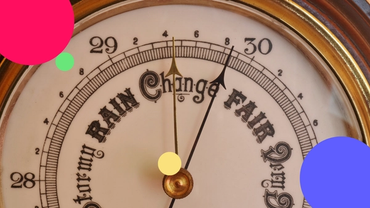Bereavement: How to navigate life after loss
With Chartered Financial Planner Sam Secomb
5 May, 2023
Coping with bereavement – whether it’s for the loss of a partner, parent or loved one – is a painful but sadly unavoidable part of life. The death of someone close to you can feel like a seismic shift in your world, and although the vast majority of us will be faced with this in our lifetime, this doesn’t make it any easier to get your head around it when it happens to you.

Beyond the emotional upheaval that a loss can cause, bereavement often comes with a whole host of practical implications too – many of which revolve around the topic of money. This can be a complex issue at the best of times, but when you’re grieving the thought of handling finances can seem like an even bigger mountain to climb.
We talked to Chartered Financial Planner Sam Secomb from Women’s Wealth in an exclusive workshop about the ways you can prepare for the loss of a loved one, including the things you can sort out in advance to ease the transition and the free financial help you can get from the government.
Watch the full video below or scroll down for some helpful money tips at each stage of the journey.
Bereavement

First stage: Anticipation
This is the step before it all happens, where you can lay the financial foundations to ease some of the burden later on, when you will invariably be distracted and not in the optimum decision-making mode. Essentially, it’s an opportunity to get some of the paperwork out the way now so you don’t have to worry about it further down the line – whether for yourself or for a loved one. Sam recommends that you pay special attention to three things in particular to plan ahead for a loss in your life: a will, lasting powers of attorney and trusts.
Wills
“If you're sharing your life with somebody and you own things together, you need to have written a will to say how things are going to be sorted out on the first of you to die - because it's very likely that one of you is going to die before the other,” Sam says. “So having a will in place and lasting powers of attorney - they're another really important mechanism for making your wishes known and empowering somebody else to carry those out for you if you're not up to it.”
Powers of attorney
Arranging powers of attorney is something that you do during your lifetime and it's intended to be used during your lifetime. Whereas a will is intended to be used on your death. Both can be arranged by a solicitor, but if you’re worried about costs, nowadays you can actually do these yourself. There are several online tools that enable you to write a will – though do make sure that you get it formally witnessed and signed to make it legally valid! And as for powers of attorney, the government website can guide you through the process of setting those up too.
Trusts
Another thing you might want to think about at this stage is putting some of your assets in trust for a loved one to receive when you’re no longer around. Sam explains, “A trust is a safe space where you can keep things and still control them and have a say, but you can't just use them yourself. […] So people sometimes want to put some of their assets outside of their own use and estate. Sometimes that's because of an inheritance tax liability. Sometimes that's because they don't want those particular assets used in the event of care fees or anything like that. Maybe they've put that aside for the grandchildren, for example. So they want some control over it, but they don't want to own it anymore. So a trust can be used to do that.”
Second stage: The ending
This is the most difficult stage in any journey through bereavement and is a time when the shock and devastation of losing someone you love can put money matters (understandably) quite low down on your to-do list. It’s during this period that any efforts you’ve made to prepare in advance will help to ease some of the pressure.
“I think the first thing is to understand that you are not, at this stage, going to have the bandwidth to deal with strategic thinking,” Sam warns. “To deal with imagining and planning for future decades... You're very likely to be just trying to get through a day at a time and be really quite shut-down in terms of your capacity. So asking too much of yourself at this stage is both unreasonable and a bit dangerous, to be honest, because you're not going to be at your optimum decision-making capacity. You're just not going to be in that place. So I think it's really important to have anticipated as much as possible and got lots of things in place.”
Bereavement Support Payment
There are a couple of things you should consider doing during this time, however, to make it a little bit easier for you on the finance front. You can claim tax-free bereavement benefits from the government to help boost your income, which may come in handy if you need to take time off of work to process your grief. Bereavement Support Payment is not means-tested and can include a lump sum of up to £3,500 plus an ongoing income over an 18-month period. This is something you will need to do quickly, as the 18 months begin from the registered date of death, so if you don’t claim it at the beginning, then you’ll lose some of your entitlement.
Sam advises that you secure any Bereavement Support Payment you may be eligible as soon as you can, which can support you financially while you handle other priorities, such as arranging a funeral. Though there is an option to pre-plan a funeral – many people do these days – not everyone will and more often than not loved ones of someone who has passed away find themselves with the stressful task of organising the funeral. So make sure to check your eligibility for Bereavement Support Payment as it could help to give your income a boost during this time.
Tell Us Once
Finally, Sam recommends using the ‘Tell Us Once’ service, which is a government-led initiative which lets you report a death to most government organisations all in one go – so you don’t have to keep repeating yourself to every department under the sun.
Third stage: Passage
It’s this stage of the bereavement journey that Sam says financial advisers are usually able to offer the most help. The third stage typically happens after about a year or 18 months on from the ending, and is when some of the big, life-changing questions start to emerge. For example, if you previously lived with a partner who has now passed away, maybe you’re wondering if it’s still the right property for you. Is the garden too big? Do you need to downsize? Should you move somewhere new for a fresh start?
Moving on
It can take a while to reach this stage in your journey because you need to take some time to experience life in your new set-up before you can really feel your way through any decisions. Sam explains how an analogy she was first told by a client about this point in their grieving process really stuck with her, and she often shares it with others.
“Grief, when it first arrives at the ending, is like if you hold a coaster or a beermat to your face. You can only see the beermat. That's all you can see because it's right in front of you. But as time goes on, and the beermat moves away, you can start to see stuff around the edges of it. And as it gets further away, you can see more around the edges of it. So the beermat is still there. It's still the same size. But as you get a bit further away from it, you start to see the other stuff again.”
Seeking financial advice
It’s during this time that you can start to really think about life after the loss of your loved one. Do you want to stay in your house? Is the income that you’ve got enough to live by? What about your assets – do you need them or can you use them to make other people happy? These questions can have profound implications for the trajectory of the rest of your life, and with big financial consequences, many people find that it’s at this point they would appreciate getting guidance from a qualified financial adviser.
Fourth stage: The New Normal
At last, you’ve come to the final stage on your bereavement journey. You’re getting used to life without your loved one. It might even start to feel “doable” again. Maybe you’ve rediscovered old hobbies, or there are new members of your family to get to know, and you feel like you’ve moved into the next chapter in your life.
Planning for yourself
This is the time to start thinking about yourself and what you might be able to do to help your loved ones when it’s your time to go. Perhaps you’ve learned something from your own experience that can inform your own planning – maybe your partner didn’t have a will, or you forgot to apply for Bereavement Support Payments. Perhaps you want to plan your own funeral in advance to have it just the way you want to. Take note of these things and use them to plan ahead for yourself.
“There's that period in between where you just don't even know how to do life,” says Sam. “And now you've got through that bit, and you're doing this new normal, it's going to be temporary. So, at that stage, I want you to start anticipating the next change immediately. So what does your will say? What does your lasting power of attorney say? Have you moved some assets on to the next generation? Have you made sure that whoever's going to be left trying to manage things after your demise has been given all the instructions that they need to make it an easy transition for them? Because that's the best we can do for our loved ones”.






